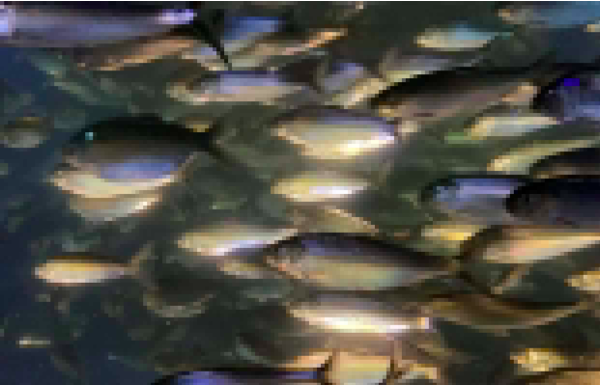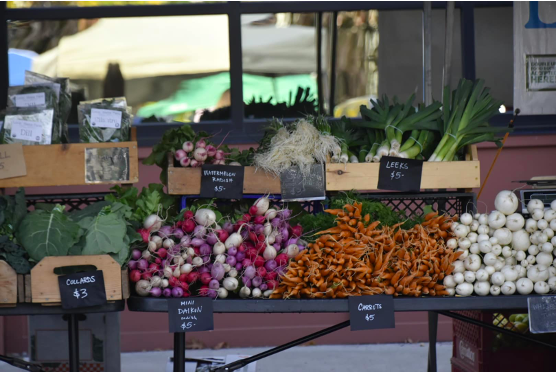Featured News - Current News - Archived News - News Categories
We can make a difference in an environment that is disappearing before our eyes.
By Jamani Butler
Special to Niagara Frontier Publications
We have only one world; however, the world we have is disintegrating at our feet. The water we drink, the air we breathe, and the food we eat are all connected to the environment; but we are watching them disappear in front of our eyes.
Climate change has taken such a toll on our planet that scientists from the United Nations believe within the next 60 years we will exhaust all of our farming resources because the soil won’t be able to take it any longer. The toxins that people and corporations use have created a thick blanket of smog around the atmosphere causing ice caps to melt and hurricanes to torment at higher rates than ever before.
What can we do? Is there anything that can be done, or is it too late?
Let’s figure it out. …
Resources Will Not Last Forever
We, as people living in a privileged country in the western hemisphere, have normalized instant gratification when it comes to our daily lives. We are able to watch shows on Netflix without commercials, order something on Amazon and have it delivered the next day, and walk into a grocery store with aisles and aisles of anything we could possibly want any time of the year. We have gotten so used to these standards that we consider them to be the norm; we can’t begin to imagine our lives without all these things.
What we don’t think about is the food on the shelves at the grocery store will not always be there. The resources that we have normalized in our lives are diminishing rapidly. We do not have endless amounts of anything we could possibly want, but we consume like we do. This is a detrimental problem in the environmental struggle we are all living in – whether we think we are or not.

Some things in the world can be used over and over again without it ever running out – like the wind or the sun – but most of the things we use so readily have an end in sight. The water we drink and the food we eat are both things that humans could consume until there is nothing left of it.
Understanding where the things we consume come from and how they came to be is just as important as consuming the thing itself. An example of this comes from the lush Amazon Rainforest. The Amazon Rainforest is home to billions of habitats and biodiversity like we could never begin to imagine; however, what many people don’t know is that the Amazon Rainforest is also home to countless medical possibilities. So many prescriptions and medications we take have their origins in the rainforest, but there are still so many possibilities regarding the medicine that we haven’t discovered yet.
However, the rainforest is disappearing because of logging at rates we couldn’t begin to imagine.
Meat Tastes Good … But How Good?
One of the least talked about contributors to environmental degradation is the way humans consume animals and fish – specifically how fast we consume it. Scientists have been saying for more than 20 years that people are overfishing to the point where aquatic life does not have enough time to repopulate, which endangers hundreds of species. In Science, a group of ecologists write, “If current trends of overfishing and pollution continue, by 2050 the populations of just about all seafood face collapse,” defined as 90% depletion in their article about biodiversity loss in ocean ecosystems.
Another extremely important and interesting fact about food relating to climate change is the way meat and dairy products impact the environment. In fact, beef leaves the largest carbon footprint out of any type of animal-based food … by far. Why is that? Part of the reason for beef leading herd (so to speak) is because of the way they digest and consume their food. Cows eat a ton of food every day – food that takes energy and requires mass amounts of space and water to grow. Then, cows let off lots of methane gas during their digestive process further polluting the environment.
While this may not be a huge deal for a few cows, the U.S. consumes beef at a rate substantially higher than any other country in the world – which, of course, adds up over time, while the high demand for beef increases over time.
Michela Rossetti, resident of a small farming community outside of Albany, and vegetarian of five years has witnessed some of the largest beef and dairy farms in the state. She said, “Farmers, specifically in small communities, depend on the sale of their milk and beef. It is their livelihood. Most of them receive their funding from national or international companies that don’t care if they have food on the table or not. However, there has to be a better way than producing as many cows as possible just to put food on the table for your family. (It) doesn’t feel like a fair tradeoff.”
What Can We Do?
Feeling like we are drowning in this ocean of a problem is a real feeling. Sometimes we feel like this one little bottle isn’t going to fix climate change if we recycle it or not, so what’s the point? The point isn’t in the single aluminum can, it’s in the global “yes we can” (some say it’s corny; I say it’s catchy). There are things we can do on the day-to-day that may not ever reverse the damage that has been done to the environment and to the planet already; but it can stop the damage in its tracks.
Niagara University freshman Katrina Giordano is founder of an initiative with Metz to collect food waste from the dining commons in order to generate compost she will later share with local farmers. She said, “There is such a stigma around (sustainability measures). People are under the impression that it is hard or won’t make a difference anyway because it is such a small endeavor. I think that mindset is an excuse people give themselves to put the responsibility on everyone else. This is just as much my planet as it is yours and I intend to make sure it can be my kid’s planet, too.”

Keeping in mind that more than 70% of the damage that is being done is coming from large corporations, not individual people, we must remember that we are all still learning and any kind of progress is progress at the end of the day.
So, here are some things that we can do:
√ Consume consciously.
We need to start consuming less meat and dairy products. When businesses make decisions with a “supply and demand” mindset while people are consuming less, then the numbers of meat and dairy that are generated will reflect that.
√ Be mindful of our waste.
Household food waste should be kept to a minimum. With options like composting and propagating our fruits and vegetables, we can (and should) start to grow our own fruits and vegetables.
√ Hold ourselves and others accountable.
The voices that we have matter. We may feel so small in relation to this massive problem, but that does not mean we should not use what we do have to make a difference. Educating our family and friends about sustainability and contacting environmental lobbyists, local/state/federal politicians, or even our universities to pledge support to greener initiatives and funding toward sustainability can go a long way.
Niagara University senior Matthew McKenzie said, “One of the most impactful and important things we can do at our university is demand change. We are the students! We’re the ones eating the food! ... If we show people in power what we want to see in Congress or on our tables for dinner, we just might get it. If you take the responsibility to incite change (to) something that matters to you, you just might get it.”
•••••
Niagara Frontier Publications works with the Niagara University communication studies department to publish the capstone work of students in CMS 120A-B.
These articles do not necessarily reflect the opinions or beliefs of NFP, NU or the communication studies department. Moreover, efforts have been made to encourage the proper use of sources, and discourage anything that would constitute plagiarism.
Comments or concerns can be sent to the NFP editorial department, care of the managing editor.





























